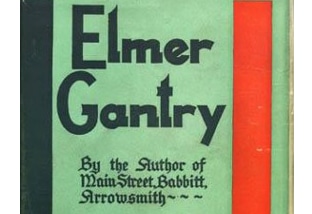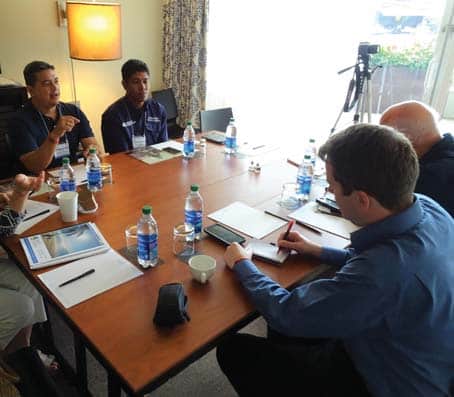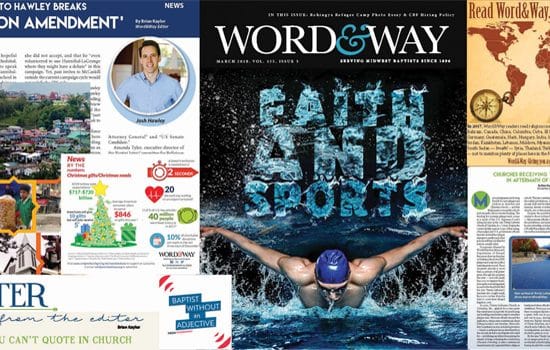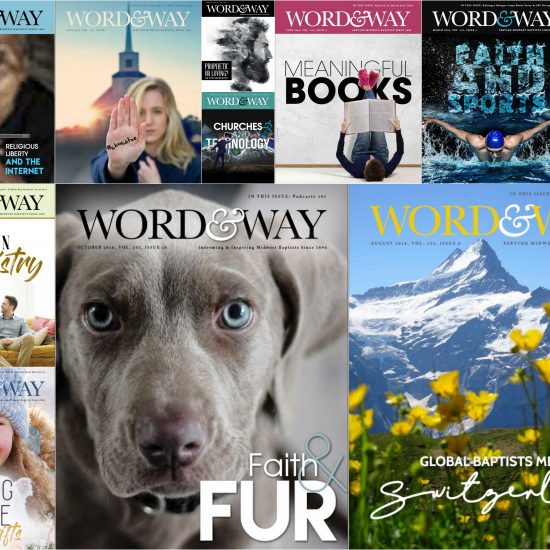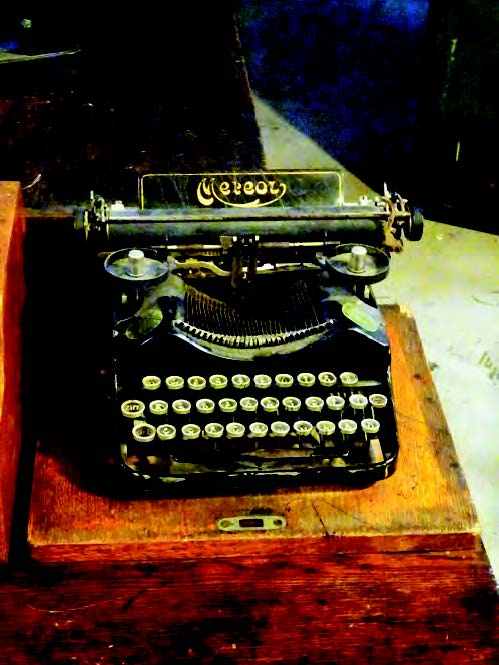
During a recent trip to Poland, (see coverage on pages 18-25 of our November issue), the Future Leadership Foundation team I traveled with visited a museum dedicated to the “Warsaw Uprising.” In the Fall of 1944, the Polish people rose up to overthrow the Nazi occupiers. In response, the Nazis flattened more than half the town — and destroyed more than 85 percent between 1939 and 1945. About 16,000 Polish resistance fighters died in the uprising.

Brian Kaylor
It’s a powerful museum, but one room stood out in particular for me — the one dedicated to the role of the press. In the midst of the fighting, a vibrant free press community continued.
But first the context. After the Nazis invaded and started occupying Poland in 1939, they banned Polish newspapers and then created Polish-language propaganda newspapers. The Nazis hoped to control the information people learned and to direct their thoughts in ways favorable to the new regime. Some employees of these papers were tried after the war for collaboration with the Nazis.
Of course, some Polish people recognized the intent of the papers and a gave them derogatory nicknames, often a pun off a propaganda newspaper’s name. One such term particularly stuck: “reptile journalism.”
Yet, almost as soon as the occupation started in 1939 and the reptile press replaced the real news media, underground newspapers started. By the time of the uprising five years later, one such paper had a circulation of more than 40,000 — a impressive number even if one did not consider the difficulty of printing a paper illegally and finding printing supplies in the middle of a war zone. Editors and writers captured by the Nazis were executed or sent to concentration camps.
As the Polish resistance fought the Nazis, they also fought the reptile press with their own free press. In an age of literal fake news, they fought back by printing the truth the powerful didn’t want published. Even as the fighting continued in the uprising and bombs destroyed the city block by block, the underground presses kept printing news.
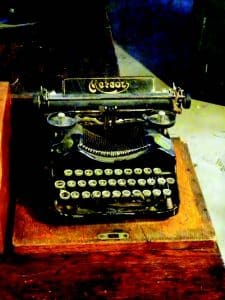
Typewriter used by an underground reporter during the Warsaw Uprising of 1944. (Brian Kaylor)
I stood in that room of the museum staring at a typewriter used by one of those underground reporters, a printing press, and copies of some of the newspapers they published during the uprising. I felt a sense of awe at their dedication and was humbled by how much freedom I enjoy and often take for granted. Even my hardest day at Word&Way wouldn’t compare to their easiest day.
But more than all that, I was humbled by the reminder of the power of the printed word. In an age of lies and biased publications, we need those who will print the truth. And that’s what we seek to do each day at Word&Way.
We’re an independent press, so we’re not pressured to serve as propaganda for a denominational boss. We’re a pan-Baptist publication telling the stories of all types of Baptists, so we’re not tempted to distort the story to just tell the party line. We’re a publication dedicated to sharing real news that leads back to the Good News, so our faith in the One who is the Word, the Way, and the Truth guides us.
But we can’t make it without you. I believe you need us. But I know we need you. I don’t mean that in a generic way. We literally need your support. We need your continued prayers and readership. And we need your financial support.
We have been investing in a marketing effort this year to reach new subscribers so Word&Way can continue into the future. But it’s expensive and such efforts don’t usually pay back for publications for a couple of years. So, we especially need your gifts to end 2019 as strong as possible.
Please join me in making a larger than usual end-year gift to Word&Way. To paraphrase a line from that old hair-growth commercial, “I’m not only the Word&Way president, I’m also a donor.”
We are grateful for your support!
NOTE: You can send your gifts to our business office (PO Box 405, Congers, NY 10920) or our news office (PO Box 1771, Jefferson City, MO 65102-1771). You can also give online at tinyurl.com/DonateWW, where you can make a one-time gift or set up a recurring monthly gift.
Brian Kaylor is editor & president of Word&Way.


